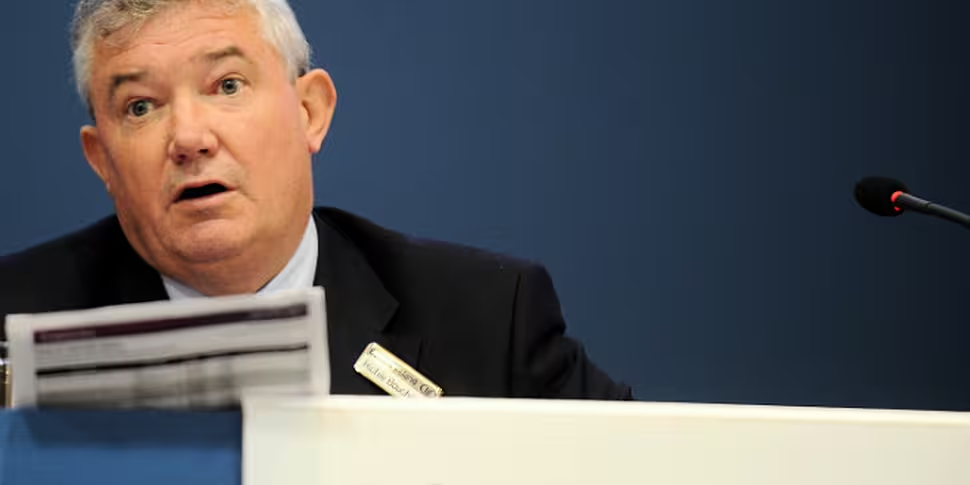Bank of Ireland Chief Executive, Richie Boucher’s testimony to the Oireachtas Banking Inquiry on Wednesday was interesting on a number of levels.
Firstly, and superficially, as a performance, it surely reflected hours on the training ground with Mr Boucher– to add to his fondness for sporting analogies – for Bank of Ireland’s Head of Public Affairs, Pat Farrell and his team.
Zambian-born, and long renowned for the southern hemisphere trait of telling things straight and bluntly, Boucher was the embodiment of deference, reflection and indeed some remorse before the Committee.
Contrary to many previous encounters with public representatives, journalists and indeed, shareholders, he never contested the validity of any line of enquiry; went out of his way to respond to each enquirer using their formal titles, and offered to speak a little louder or to repeat certain points as the committee required. Broadway could beckon when he finally does step down from his current role.
But it would be unfair to characterise yesterday’s proceedings as purely a “performance” on the part of one of Ireland’s foremost banking bruisers and survivors.
Many commentators have questioned the value of the Inquiry generally, and the succession of pitch-side commentators and spectators has served as a fairly meaningless prologue to date, but the recent, sometimes conflicting, testimony of the senior banking executives who were in charge in 2008, has been more instructive.
It’s true, much of it has involved public and slightly hollow displays of breast-beating and craven apology to a still angry public and shows of apparent bewilderment as to how, individually and collectively, these highly-pensioned masters of the then-known universe didn’t realise the party had become an orgy.
Richie Boucher’s testimony involved some more of the same, particularly with reference to his all-too-cosy personal relationship with developer, Sean Dunne.
But as the only senior protagonist from the time still standing, his slightly emotional re-affirmation of having backed up his apologies to taxpayers and shareholders with action to restructure the bank; radically reassess its approach to risk; repay the State’s investment and restore profitability, came across as credible, if still difficult listening. It was particularly difficult, of course, for those debtors and mortgage holders to whom Boucher’s bank still shows a pretty forbidding face.
Economist, Colm McCarthy is surely correct in his view that, if the Inquiry is to have any lasting value, it will likely emerge from a forensic trawl through the documentation the various financial institutions have been required to hand over.
These minutes, memos, policy and strategy documents will indicate more cogently than any verbal testimony just who knew (or should have known) what and when; whether risk, liquidity and credit limit policies were simply absent or breached in the extreme; and to what degree competition with other out of control lenders drove each bank’s journey to the edge of the cliff.
But perhaps, as Richie Boucher indicated with some degree of credibility yesterday, we have all been victims more of an evolving process, through that period of unprecedented economic growth, involving grossly inadequate policies and procedures; insufficient challenge to executives from well-remunerated board members; collective greed and arrogance and chummy relationships, than any one specific failing or particular strategy to beat the other bank or drive us all to hell in a hand cart in the process.
Not particularly comforting, but of some value none the less, for all that.









